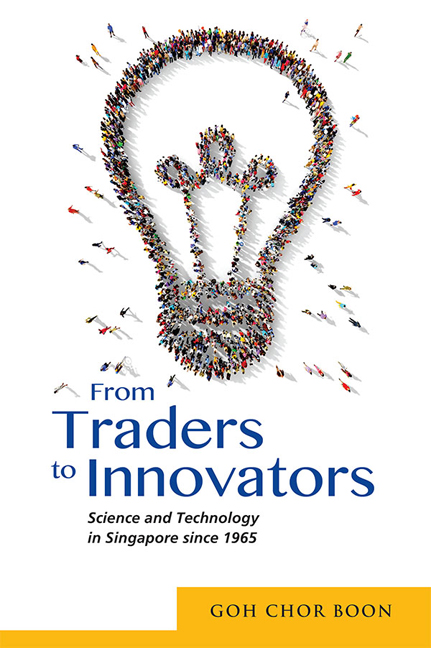Book contents
- Frontmatter
- Contents
- List of Abbreviations
- Introduction
- 1 From Dependency Theory to Creative Innovation
- 2 Surviving and Catching Up in the 1960s and 1970s
- 3 Developing a Technological Growth Trajectory in the 1980s
- 4 State Intervention and Technological Change
- 5 Nurturing a Scientific Culture
- 6 Sociocultural Attributes and R&D
- 7 Towards a Technologically Creative Society
- 8 Conclusion: Power of a Service-Brokerage Culture
- Bibliography
- Index
- About the Author
1 - From Dependency Theory to Creative Innovation
Published online by Cambridge University Press: 19 May 2017
- Frontmatter
- Contents
- List of Abbreviations
- Introduction
- 1 From Dependency Theory to Creative Innovation
- 2 Surviving and Catching Up in the 1960s and 1970s
- 3 Developing a Technological Growth Trajectory in the 1980s
- 4 State Intervention and Technological Change
- 5 Nurturing a Scientific Culture
- 6 Sociocultural Attributes and R&D
- 7 Towards a Technologically Creative Society
- 8 Conclusion: Power of a Service-Brokerage Culture
- Bibliography
- Index
- About the Author
Summary
During the 1970s and 1980s, perceptions concerning technological advancement changed substantially as a result of the phenomenal post-war rise of Japan, followed by the four Asian NIEs — Hong Kong, Taiwan, Singapore and South Korea. Particularly for South Korea and Taiwan, they have experienced economic growth through their ability not only to manage effectively foreign technology but to also develop a dynamic indigenous base. Hence, for the Asian NIEs, science and technology have become critical catalysts for economic development. Increasingly, attempts to explain the success of rapidly growing economies have involved a technological dimension. In this work, the broad theoretical framework of the relationship between technological change and economic development is seen from two shifting paradigms — from the dependency theory and technological dependence to the theoretical concepts of catching-up and technological leapfrogging and how they are achieved through the role of the state and society.
THE DEPENDENCY THEORY AND LATE-INDUSTRIALIZATION
The dependency theory, simply stated, maintains that growth and development in the developing countries (“the periphery”) is hampered by structural dependence on the advanced, industrialized countries (“the core”), although the degree of such constraints varies widely. The theory was made popular during the 1970s by the pessimistic views of Gunder Franck and Samir Amin, both of whom asserted the impossibility of peripheral development in the so-called Third World because of the ways in which the industrialized countries exploited the resources of the former. In a later work and in response to the emergence of the newly industrializing countries, Frank argues that the popular strategy of export-led growth by these countries did not create genuine development because it was also largely dependent on the flow of international capitalism and foreign technology. Writing in the early 1990s and when the world economy was becoming more competitive, more global and increasingly controlled by information and communication technology, Brazilian political economist Fernando Cardoso reaffirms the dependency position of many poor and developing countries. But now they faced “a crueler phenomenon: either the South (or a portion of it) enters the democratic-technological-scientific race, invests heavily in research and development (R'D), and endures the information economy metamorphosis, or it becomes unimportant, unexploited and unexploitable”.
- Type
- Chapter
- Information
- From Traders to InnovatorsScience and Technology in Singapore since 1965, pp. 1 - 27Publisher: ISEAS–Yusof Ishak InstitutePrint publication year: 2016

